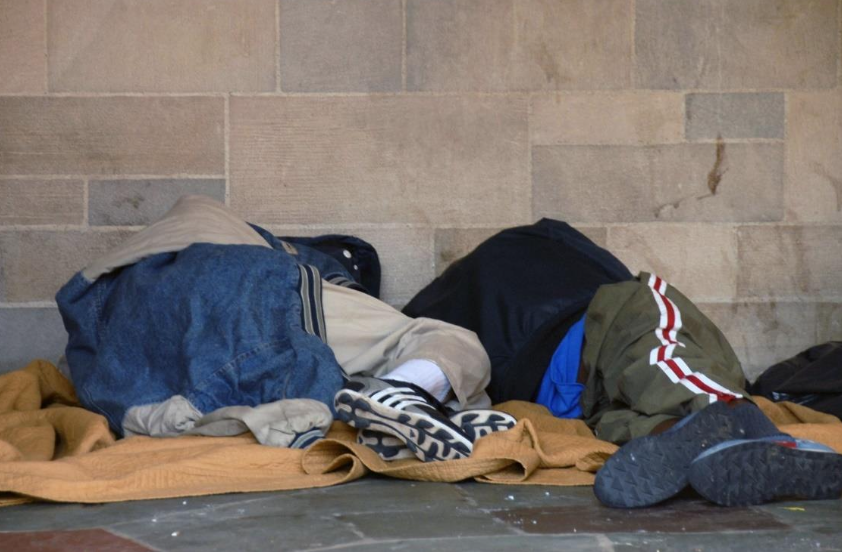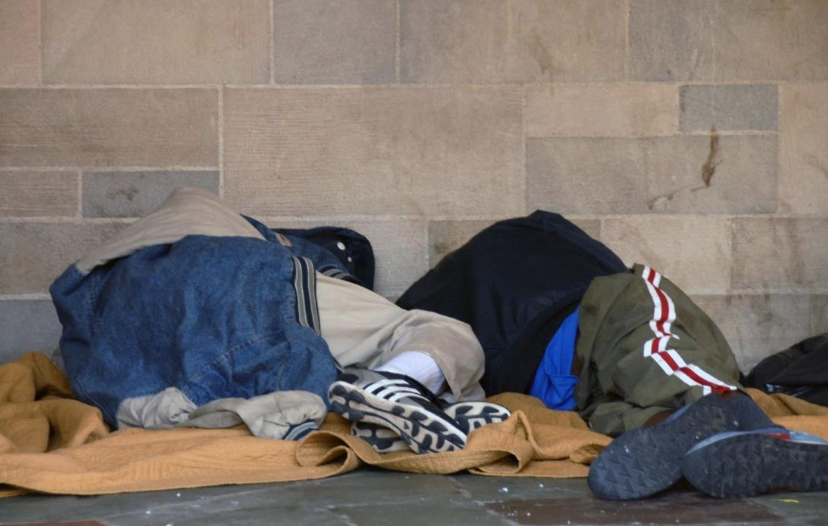Criminalizing homelessness: A short history of vagrancy laws
AUTHOR: Annika Kannen
Summary: This article is about the historical roots and discriminatory impact of vagrancy laws targeting people living in homelessness and poverty. It talks about ongoing struggles for reform and delves into why these vague, outdated laws undermine justice and perpetuate harm.

Photo by hdabed on Freeimages.com
First of all, what are vagrancy laws? They are laws that target individuals who are affected byhomelessness and poverty by criminalizing behaviors associated with poverty, like loitering, “begging” and sleeping in public spaces. Some of them are broader, stating that ‘being without a fixed home, employment or means of subsistence’, ‘being idle and disorderly’, ‘being without fixed abode’, and ‘being a rogue and vagabond’ are all considered punishable by law. It can also include laws regulating sex work since disproportionally many sex workers experience poverty and homelessness.
Vagrancy laws have a long history and date back to as early as the 14th century in England. European countries such as Belgium, France, Portugal, Spain, and the Netherlands also enacted similar laws, which were later transposed to their colonies. Specifically in countries subject to English colonial rule, these laws were introduced through a code based on the English Vagrancy Act. These laws aimed at ensuring cheap labor, reducing authorities’ responsibilities to address poverty, and preventing property crime. They were based on outdated stereotypes and notions reflecting colonial perceptions and hierarchies, dehumanizing individuals with perceived lower status.
And even though we would now view those perceptions as wrong, many countries still uphold these laws. Efforts to repeal vagrancy laws have been ongoing, with some countries taking steps to dismantle them. In February 2022, the UK government announced its decision to scrap the Vagrancy Act of 1824 after years of campaigning by groups working with people experiencing homelessness.
Nevertheless, the law continues to remain on the books until it is replaced with new legislation, meaning since the government made the decision to get rid of the Act, at least a thousand people were arrested for sleeping outside or begging under the same Act.In countries like Sierra Leone and Nigeria, former British colonies, vagrancy laws are still in effect. For example, in Sierra Leone, the criminal proscription of ‘loitering’ has led to alleged widespread human rights violations, as highlighted in a case before the Community Court of Justice of the Economic Community of West African States (ECOWAS). Similarly, Nigeria’s Criminal Code Act includes provisions for arresting and imprisoning individuals deemed “idle and disorderly persons” This certainly fits the trend of colonial influence continuously harming former colonies. Violating the people’s right to not be discriminated against is not the only problem with these laws. As you may have already noticed, some of these laws are pretty vague. “Being disorderly” can be made to include a lot of behaviors that in no way shape or form should be considered a crime and also do not tell people a lot about how to avoid “being disorderly”. There is something called the „principle of legality”, which requires laws to be formulated in a way that is precise and allows people
to understand their meaning accurately. In order to avoid “disorderly behavior”, for example. But if anything can be disorderly, not only can the law then be bent to fit a certain situation, but it also does not give one the opportunity to correct their behavior. Apart from this, there is another principle called “minimum intervention”, stating that the criminal justice system should only interfere the minimum amount needed to keep citizens safe. On that note, we should think about whether “begging”or “being without a fixed home” is really something that the criminal justice system needs to protect us from.
In the context of criminalizing poverty, laws about sex work are often in discussion. While this is something people have different opinions on, some wanting to decriminalize sex work entirely while others only wanting to decriminalize workers but not buyers, there are some instances we can point to when thinking about what a reform of those laws might look like. In New Zeeland, the Prostitution Reform Act decriminalized sex work in 2003, which many sex workers perceived as an overall positive change. In particular, it improves situations in which sex workers might need to call the police, for example, to protect themselves from a client, but would previously not due to the danger of being arrested themselves. There is a bigger discussion to be had about the implications and ethics of sex work itself, but our first thought with any reform should always be protecting sex workers, which the New Zeeland Reform seemed to be successful at to some degree.
In general, you can see that vagrancy laws are multi-faceted, criminalizing many parts of the lives of impoverished and homeless people and dating back hundreds of years. They are an idea rooted in the disdain for people of a “lower class” and ideas of colonialism, discriminating against minority groups in multiple ways. They are vague and subject to interpretation (which certainly should not be the case for any law), unnecessary for public safety, and therefore should be repealed as soon as possible.
Sources:
Decriminalization of homelessness and extreme poverty: Submission to the UN Special Rapporteurs on Extreme Poverty and the Right to Adequate Housing – Amnesty International Governments are criminalizing homeless people to distract from their own failures – Amnesty International

